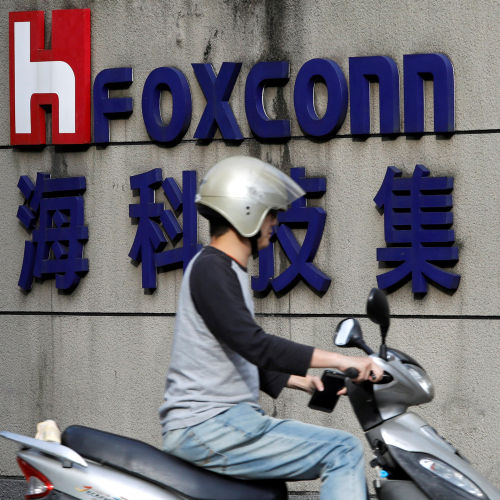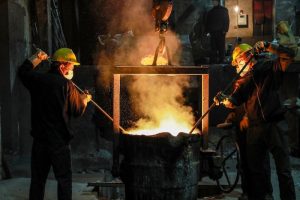Production of iPhones could fall by as much as 30% next month at one of Apple Inc’s biggest factories in the world as China tightens Covid-19 curbs.
A person with direct knowledge of the matter told Reuters that factory owner Foxconn is working to boost production at another factory in Shenzhen city to make up for the shortfall.
Its main Zhengzhou plant in central China, which employs about 200,000 people, has been rocked by unrest over stringent measures to curb the spread of Covid-19. Several workers reportedly fled the site over the weekend.
Also Read: Huawei Comeback Drive Fuelled by Hit EV and Patriotic Fervour
Foxconn is Apple’s biggest iPhone maker, producing 70% of iPhone shipments globally, which in turn makes up 45% of the Taiwanese firm’s revenue, analysts at Taipei-based Fubon Research said this month.
It also builds the device in India, but its Zhengzhou factory assembles the majority of its global output.
A second person familiar with the situation said many workers remained at the Zhengzhou plant and that production was continuing.
Apple did not respond to a request for comment.
Busy season for Apple
The possible impact on production comes amid a traditionally busy time for electronics makers ahead of the year-end holiday season, which is also a prime time for vendors such as Apple.
Foxconn on Sunday said it was bringing the situation under control and would coordinate back-up production with other plants to reduce any potential impact. Its share price closed down 1.4% on Monday versus a 1.3% rise in the broader market.
Under China’s ultra-strict zero-Covid policies, localities must act swiftly to quell outbreaks, with measures including full-scale lockdowns.
Factories in affected areas are often allowed to stay open on condition they operate under a “closed loop” system where staff live and work on-site. Businesses have said such arrangements pose numerous difficulties.
Zero-Covid measures in effect
Foxconn banned dining at canteens at the Zhengzhou plant on October 19 and required workers to eat meals in dormitories. It said production was normal.
The measures led to people who said they worked at the site venting frustration about their treatment and provisions via social media.
Scores fled the site over the weekend, with photographs and videos on social media purporting to show Foxconn staff trekking across fields in daytime and along roads at night. Reuters could not immediately verify the authenticity of the posts.
Workers have broken out of #Apple’s largest assembly site, escaping the Zero #Covid lockdown at Foxconn in #Zhengzhou. After sneaking out, they’re walking to home towns more than 100 kilometres away to beat the Covid app measures designed to control people and stop this. #China pic.twitter.com/NHjOjclAyU
— Stephen McDonell (@StephenMcDonell) October 30, 2022
Foxconn has not disclosed whether any workers at the Zhengzhou site had been diagnosed with COVID-19. Authorities have since Oct. 19 reported 264 locally transmitted COVID-19 cases in Zhengzhou, the capital of central Henan province.
Foxconn implemented closed loop measures in March and July this year at its smaller Shenzhen factory as cases in the southern city rose.
In May, the Shanghai plant of another Apple supplier, MacBook assembler Quanta Computer Inc, was also hit by worker chaos after the discovery of COVID-19 cases despite a closed-loop system being put in place.
- Reuters, with additional editing from Vishakha Saxena
Read more:
China’s Factory Activity Set to Slip Close to Contraction: Poll
China Plans $221m Covid Quarantine Centre on Island – Caixin
US Business Sentiment in China at Record Low, Survey Shows
Covid Hits Beijing’s Universal Resort, Wuhan and Guangzhou
























